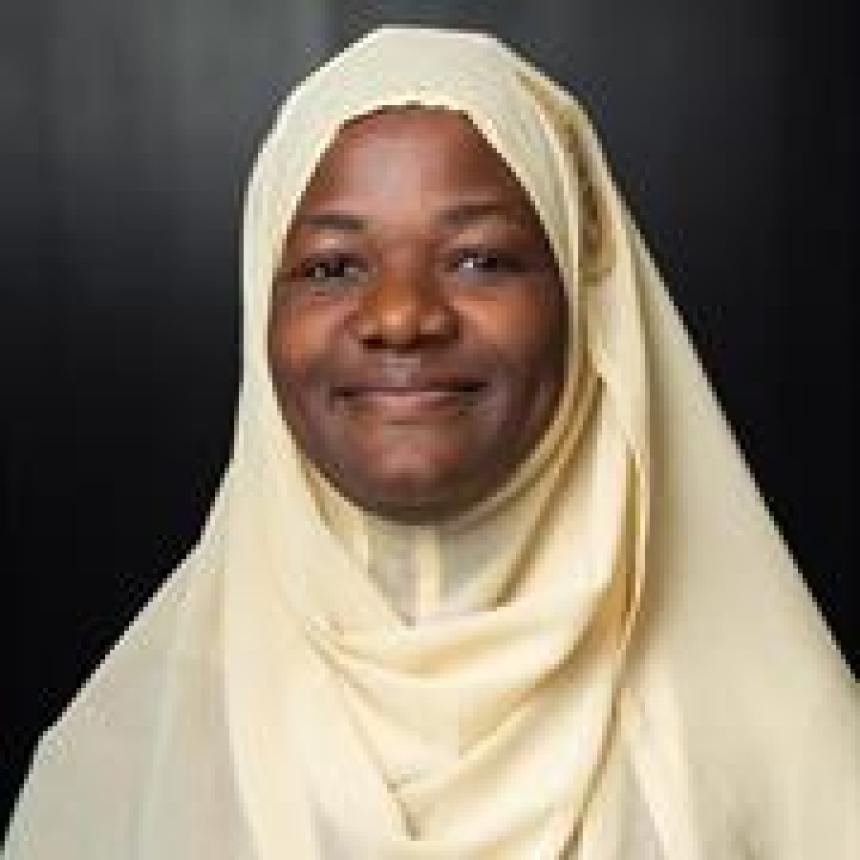
Research Interests
Biochemistry & Molecular Biology Biochemistry and Cell Biology Bioinformatics Bioinformatics Software Developmental Genetics Medical Biochemistry and Metabolomics Medical Microbiology Medicinal and Biomolecular Chemistry Molecular Medicine Early Origins of Health Fertility and Conception Pregnancy and BirthMs Rafiatu Azumah
School of Pharmacy and Biomedical Sciences
College of Health
I am a Post-doctoral fellow working on the pathophysiology of Polycystic Ovary Syndrome (PCOS) with focus on the genetic and fetal origins of the syndrome under the supervision of Prof. Raymond Rodgers.Polycystic Ovary Syndrome (PCOS) is a complex syndrome that presents endocrine, metabolic and reproductive symptoms, affecting about 10% of women of reproductive age. However, the pathogenesis of PCOS is poorly understood hence diagnosis is usually delayed due to the numerous associated symptoms, and treatment is mainly based on management of presenting symptoms. Moreover, studies involving animals and women with the syndrome, as well as their offspring, have shown similar patterns that infer the possible fetal origin of PCOS. Thus, children born to women with PCOS have an increased risk of the syndrome compared to those not exposed.Characteristics of babies at birth, such as thinness, determined by low weight per length (Ponderal Index, PI), have been associated with likelihood of developing PCOS later in life (Davies et al. 2012). PI at birth has also been associated with insulin resistance and infertility (Neves et al. 2020, Dupont et al. 2019). Previous studies into the aetiology of PCOS have led to the hypothesis that certain abnormalities during fetal development could possibly influence anthropometric features at birth, accounting for the different phenotypes observed.Our current studies suggest that fetal organs develop differently and that abnormalities during development could lead to predisposition to PCOS later in life. Our work suggests that the fibrous nature of polycystic ovary likely arises during fetal development by an overgrowth of stroma in the ovary. We hope to identify PCOS markers of stroma overgrowth in newborns and examine their association with anthropometric features in these newborns.The relationship between levels of PCOS biomarkers related to symptoms observed and anthropometric features at birth such as weight, height, and PI will then be determined. Biomarkers that reflect consistent association could be used as early diagnostic tools to identify offspring at risk of developing PCOS later in life.
Polycystic Ovary Syndrome (PCOS) is a complex syndrome affecting about 10% of women of reproductive age.
‘Polycystic ovary syndrome (PCOS) is a frustrating experience for women, often complex for managing clinicians and is a scientific challenge for researchers’ (Teede et al, 2010). The outcomes of genome wide association studies and candidate gene studies towards defining PCOS have, arguably, almost impact on the diagnosis and treatment of the syndrome. This could be attributed mainly to the divergence of PCOS studies, thus these studies have not collectively defined the molecular mechanisms involved in PCOS phenotypes observed. Currently, attempts to define the genetic and fetal origins have been become the focus of most research in PCOS. Also, the upstream mechanisms involved in expression of PCOS candidate genes have not been analysed in detail.
| Date | Type | Title | Institution Name | Country | Amount |
|---|---|---|---|---|---|
| 2024 | Recognition | Dean's Commendation for Doctoral Thesis Excellence | The University of Adelaide | Australia | - |
| 2021 | Scholarship | NHMRC CRE WHiRL PhD top-up scholarship | The University of Adelaide | Australia | $6000 |
| 2018 | Scholarship | Australian Research Training Program | The University of Adelaide | Australia | - |
| 2018 | Scholarship | Division of Health and Medical Science Scholarship | The University of Adelaide | Australia | - |
| Date | Institution name | Country | Title |
|---|---|---|---|
| 2018 - 2022 | The University of Adelaide | Australia | PhD (Medicine) |
| 2014 - 2015 | University of KwaZulu-Natal | South Africa | Masters in Medical Research (Microbiology) |
| 2008 - 2012 | Kwame Nkrumah University of Science and Technology | Ghana | BSc. (Hons) degree in Biochemistry |



